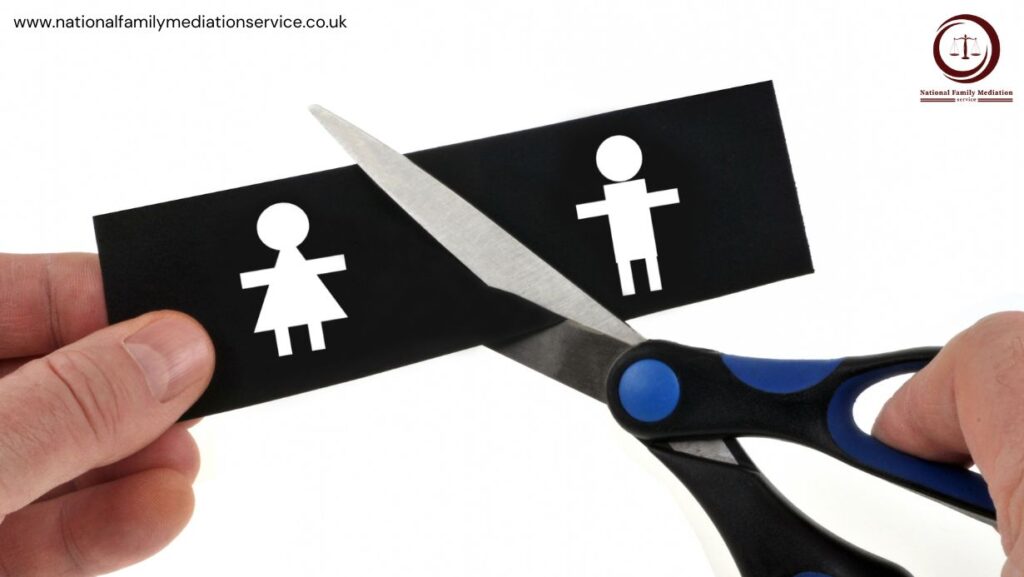Mastering the Art of Setting Goals in Mediation

Setting Goals in Mediation – Introduction
Key Highlights – Setting Goals in Mediation
Introduction – National Family Mediation Taunton
In conflict resolution and setting goals in mediation, the process depends on good communication and a clear way to handle disagreements. A key part of this process is the National Family Taunton mediator’s role. The mediator is a neutral third party who helps the disputing parties find a solution that works for everyone. Setting clear goals is important for successful mediation. When there is clarity, teamwork, and a shared vision, it creates a better chance for a good outcome in the mediation.
The Essence of Goal Setting in Mediation
Setting goals in Mediation with National Family Mediation Taunton is not just a step in the process. It is a change in how we see things. It helps us move away from a fighting mindset that is often seen in disputes. Instead, it fosters teamwork and finding solutions together. This change requires all people involved to actively take part. It helps everyone understand the problems better and agree on what they want to achieve.
When goals are clear, parties can go beyond stating what they want. They can express their real needs and interests. This approach opens the door to creative thinking. It allows everyone to look for solutions that can meet, as much as possible, the main concerns of all parties.
Understanding Family Mediation’s Core Objectives
Before looking at individual goals, it’s important to understand the main goals of mediation. The key purpose of mediation is to reach a resolution of the dispute that everyone agrees on and can accept over time. This helps to shift away from the win-lose mentality found in court cases. It often means finding common ground, understanding each other’s views, and thinking of creative solutions that meet everyone’s needs.
Working with National Family Mediation Taunton has many benefits. It creates a space for open talks, allowing people to share thoughts and feel listened to. This can help mend broken relationships, enhance understanding, and make future interactions friendlier, even if not every issue is fully agreed upon.
Mediation Taunton is not the final step. It’s a point toward a future where the disputing parties can live together peacefully. The goal is to give people the tools and agreements they need to stop future arguments or handle them in a positive way if they come up again.
Identifying Personal and Shared Goals
With National Family Mediation Taunton disputing parties must first understand their needs and the goals they share. Individual goals are the hopes each person has, like getting money or changing some behavior. These are important, but finding shared goals makes it easier to reach a good solution for everyone.
Shared goals show what everyone wants. They help guide the mediation toward a successful outcome. Examples of these goals could be keeping a working relationship, reducing future conflict, or reaching a fair agreement. When disputing parties find these common goals, they can stop fighting and work together for a solution that helps all sides.
When parties see the difference between personal and shared needs with setting goals in mediation, they can set their priorities better. Not every personal aim will be met, but focusing on shared goals makes it more likely to find a resolution that meets everyone’s main needs. This focus also helps build a better future.
Crafting Clear and Achievable Mediation Goals

Setting goals in mediation that are clear, realistic and simple is very important for success with National Family Mediation Taunton. Goals that are unclear or too ambitious can cause confusion and frustration, making the mediation process harder. Each person should explain what they want to achieve in a way everyone can understand.
This clarity goes beyond just saying what they want. It also means breaking big goals into smaller, manageable steps. By making clear milestones, disputing parties can create a path to follow. This helps them feel good about their progress and improves the chances of finding a lasting solution in the mediation process.
Setting Goals in Mediation For Success
With a clear view of personal and shared goals, disputing parties can start prioritizing them. This helps create a better chance for successful mediation. It often requires some flexibility and compromise because not all goals are equally important. A skilled mediator can help in this situation by encouraging open communication. They guide the parties toward understanding the key aspects of the dispute.
By talking about these goals, with National Family Mediation Taunton disputing parties can handle complex issues better. This clear communication reduces the chance of misunderstandings and builds trust. It makes the process of mediation work better for everyone by focusing on their most important concerns.
Communicating Mediation Goals Effectively with Confidentiality
Effective communication is very important during the mediation process. It is especially critical when sharing and clarifying goals. Open and honest dialogue helps everyone feel heard, understood, and respected. This kind of honesty creates a sense of understanding and builds trust, which is vital for successful mediation.
Good communication is more than just words in mediation. It requires empathy. It also needs a desire to see things from other people’s points of view. By listening closely and trying to understand each party’s needs and interests, people can work together better and find solutions.
Preparing to Share Your Mediation Goals
Thorough preparation is important for people to share their goals well during a mediation session. When you take time to organize your thoughts, collect useful information, and think about possible questions or challenges, you can express your desired outcomes clearly. By putting in the effort before the meeting, you help yourself approach the mediation process with confidence and understanding.
Consider writing down your goals and why they matter to you. Think about how achieving these goals could make things better. This self-reflection helps you understand your needs and prepares you for possible compromises or different solutions.
Mediation Taunton offers a space for open and truthful talk with help from an impartial third party. By coming prepared and ready to communicate well, you boost the overall effectiveness of the mediation process. This can improve the chances of reaching an agreement that works for everyone.
Techniques for Effective Goal Communication With Your Mediator
Mastering a few key techniques for good communication can help people work through the challenges of the mediation process. These strategies help ensure that goals are shared clearly. This can improve understanding and reduce misunderstandings.
-
- Active Listening: Pay careful attention when others talk. Show that you really want to understand their views. Ask questions to make sure you understand correctly and avoid jumping to conclusions.
-
- Use “I” Statements: Share your goals and needs with “I” statements. This reduces defensiveness and encourages personal responsibility. It helps to keep the person and the problem separate, leading to a more respectful and cooperative atmosphere.
-
- Focus on Interests, Not Positions: Clearly express the needs and interests behind your stated goals. By explaining the “why” behind your aims, you allow room for creative and cooperative solutions.
Navigating the Challenges in Mediation Goal Setting
While setting clear and achievable goals is important for successful mediation, it can be challenging. Disputing parties may face resistance and run into unexpected problems. They might also find new information that changes their original goals. Dealing with these issues needs flexibility, open-mindedness, and a readiness to change.
Being open to different views, listening closely, and negotiating in good faith can help these parties overcome stuck points. This way, they can find creative solutions that meet changing needs and priorities. Understanding that mediation is a flexible process that might need changes as it goes along.

Addressing Resistance and Challenges from Other Parties
Resistance from other parties is a common problem in mediation. It often comes from beliefs, trust issues, or fear of losing control,It’s important to understand the reasons behind the objections. Remember, there are . Finding these hidden motivations helps to move past a standstill.
One way to handle resistance is to acknowledge the other party’s worries. Show that you hear and understand their viewpoint. This active listening can reduce tension and open up dialogue. Once a connection is made, look for shared interests and ways to find solutions that benefit everyone. Focusing on what you both want can lead to winning outcomes.
Setting Goals in Mediation – Conclusion
In conclusion, learning how to set goals with National Family Mediation Taunton is very important for solving conflicts. First, you should understand the main objectives. Then, identify both personal and shared goals. Make sure these goals are clear, achievable, and follow the SMART method. This will help you succeed in mediation. Good communication about your goals is crucial. Be ready to handle any pushback from other people. It’s important to adjust your goals when new information comes in. This shows that you can adapt and move forward.
How Can I Start My Mediation?
By focusing on goals and keeping a balance between personal and shared aims, you can create a positive mediation environment. If you need help with goal setting in mediation, please talk to our experts today.
Speak to National Family Mediation Taunton today 03300 101 367 or fill in our contact form to arrange a callback.

